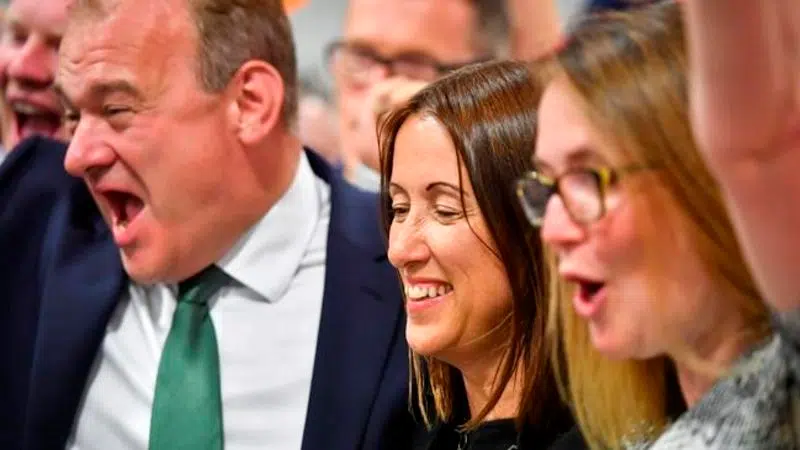
Pro-EU party wins, cuts Johnson’s UK Parliament margin to 1
LONDON — British Prime Minister Boris Johnson’s Brexit-backing Conservative Party lost a special election Friday to a pro-EU opposition candidate, leaving Johnson with only a one-vote majority in Parliament as the U.K.’s departure from the European Union looms.
In the Conservatives’ first electoral test since Johnson became prime minister last month on a vow to complete Brexit “do or die,” the party was defeated for the seat of Brecon and Radnorshire in Wales by Jane Dodds of the Liberal Democrats. Dodds won 43% of the vote, against 39% for Conservative Chris Davies, who fought to retain the seat after being convicted and fined for expenses fraud.
Dodds urged the prime minister to rule out leaving the EU without a divorce agreement, saying “a no-deal Brexit would be a disaster” for agricultural areas like her constituency some 175 miles (280 kilometres) west of London.
Sheep farmers in Wales worry that, without a Brexit deal, steep tariffs on lamb exports will devastate their business.


